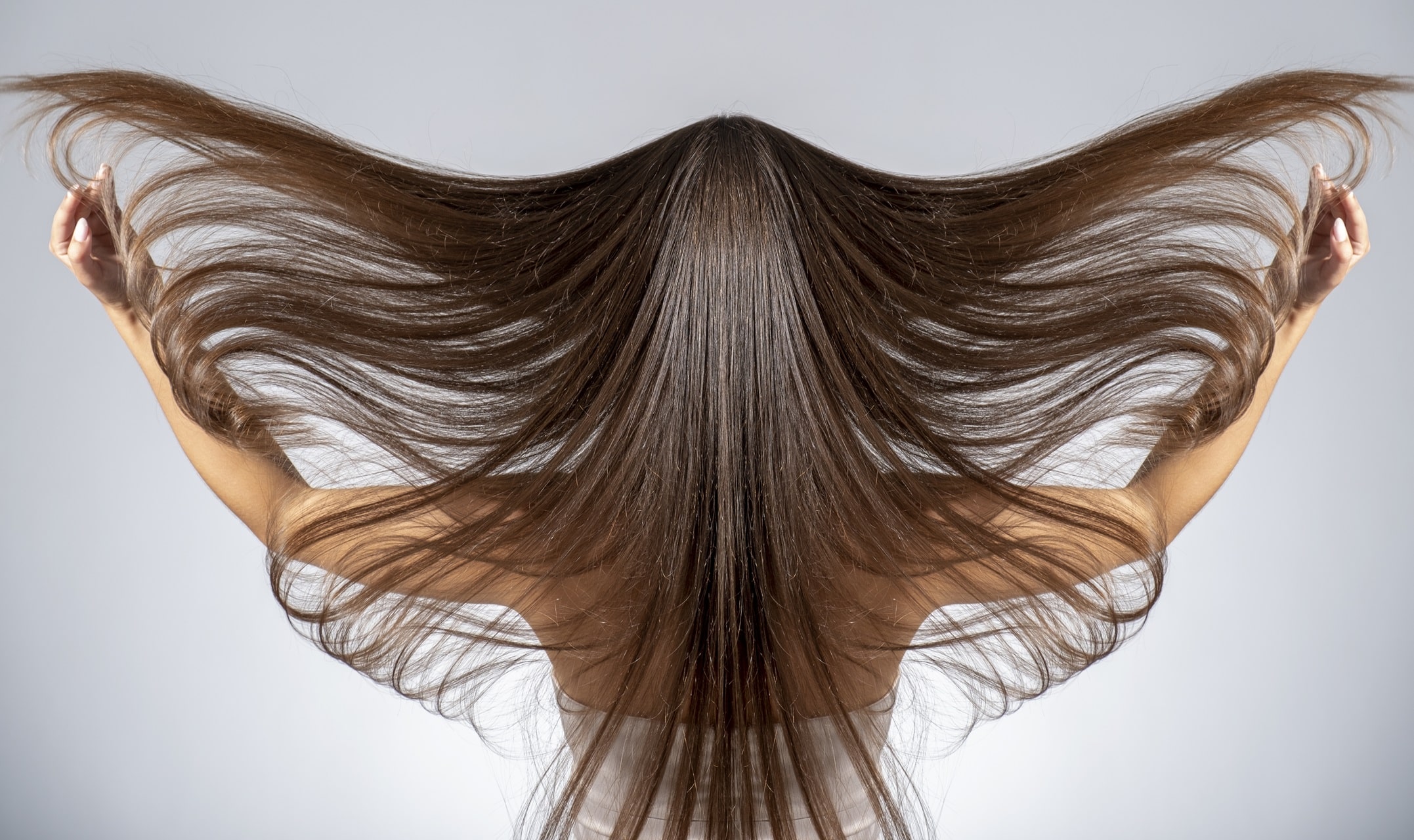Keratin is a fibrous structural protein that is abundant in the human body. It is a type of intermediate filament that helps provide mechanical stability and integrity to epithelial cells and tissues. Historically, the term keratin has referred to all proteins derived from skin modifications such as hooves, claws and horns. However, keratin is most commonly found in epithelial cells of the skin, nails and hair. Keratin is a very important protein that serves vital functions in the human body.
There are several types of keratin that can be found in the human body. These include acidic keratins, basic keratins and hair keratins. Acidic keratins are found in the nail bed and the stratum corneum of the skin. Basic keratins are found in the basal cells of the epidermis and in the hair follicle. Hair keratins are a unique type of keratin found only in hair and are responsible for the strength and elasticity of hair. These different types of keratins play a crucial role in maintaining the structural integrity of various parts of the body.

Importance of Keratin
Keratin plays a vital role in maintaining the health and integrity of hair, skin and nails. As part of the epithelial cytoskeleton, keratin provides mechanical support to these tissues. It helps hold skin cells together, making the skin more resistant to damage and injury. In hair, keratin is responsible for providing strength and elasticity, helping to prevent breakage and split ends. Keratin also plays an important role in the formation of nails, helping to keep them strong and healthy. In general, keratin is an essential protein that helps maintain the structural integrity of various tissues and organs of the human body.
Factors affecting keratin production and maintenance in the body
Keratin is a protein naturally produced by the body and found in various parts of the body, including hair, nails, skin, glands and organs. It provides support and structure to these parts of the body, contributing to their mechanical stability and integrity. Nutritional factors play an important role in the production of keratin in the body, with certain foods containing minerals and vitamins that help increase keratin production. These nutrients include: - Zinc - Vitamin C - Biotin - Vitamin A. Including these nutrients in the diet can help strengthen skin, hair and nails by promoting healthy keratin production.
Environmental factors can also affect the maintenance of keratin in the body. Exposure to harsh chemicals, such as those found in hair dyes and styling products, can damage keratin and lead to weakened hair and nails. In addition, overexposure to UV radiation from the sun can also damage keratin in the skin, leading to premature aging and an increased risk of skin cancer. It is crucial to protect the skin and hair from these environmental stressors to maintain healthy keratin levels.

Various medical conditions can also affect keratin production and maintenance in the body. Genetic disorders such as epidermolysis bullosa can cause a deficiency in keratin production, leading to skin blistering and other complications. Some autoimmune diseases, such as psoriasis, can also affect keratin production, leading to inflammation and flaking of the skin. In addition, nutritional deficiencies such as protein or iron deficiency can also affect keratin production, leading to weak hair and nails. It is important to address these underlying medical conditions to maintain healthy keratin levels in the body. In conclusion, while keratin is a naturally occurring protein in the body, various factors can affect its production and maintenance. Nutritional factors, environmental stressors and medical conditions can all play a role in the health of keratin in the body. By addressing these factors, individuals can promote healthy keratin levels and maintain healthy skin, hair and nails.









